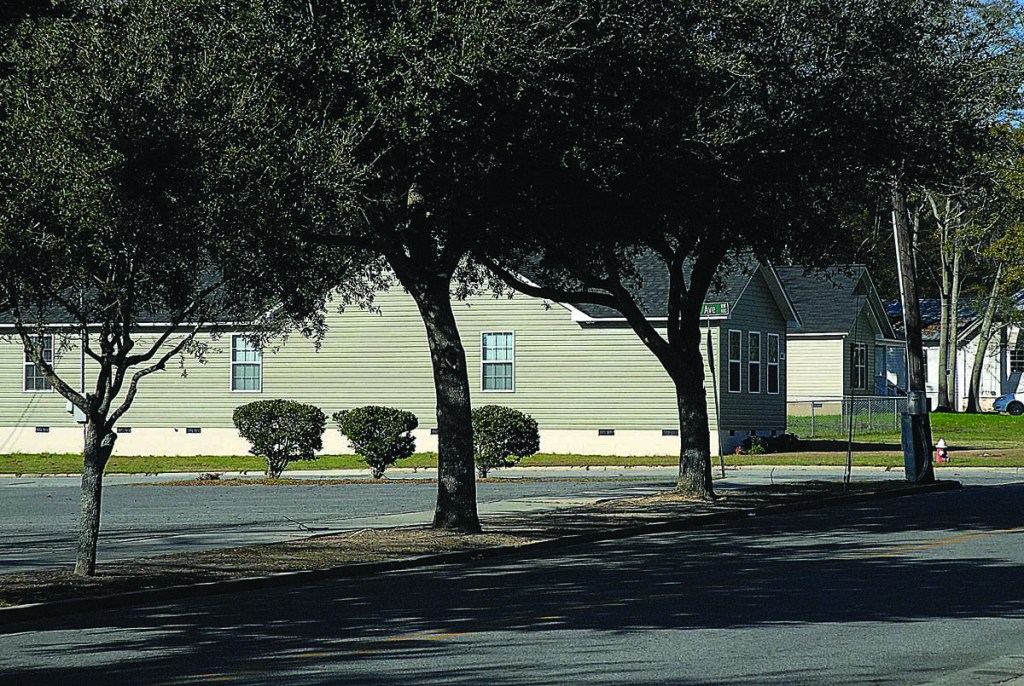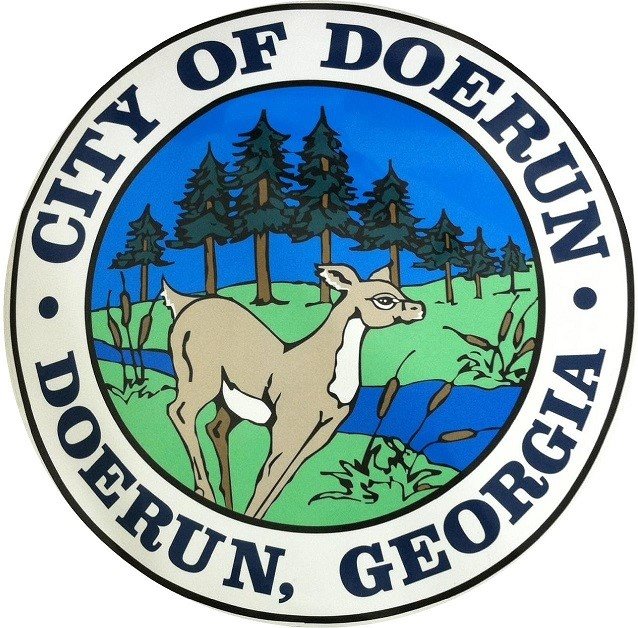COMMUNITY ON THE GROW: City sees progress on dilapidated houses
Published 6:30 pm Saturday, December 30, 2017

- Community Ventures sold its first two houses in 2017: one shown in the foreground of this photo and the other behind it. Community Ventures is a nonprofit organization based in Camilla, and it’s part of a plan to remove dilapidated housing from part of Northwest Moultrie and replace it with new, affordable houses like these.
MOULTRIE, Ga. — Throughout 2017, stories in The Moultrie Observer have highlighted the City of Moultrie’s efforts to clean up dilapidated housing, but City Manager Pete Dillard said recently that he’s actually disappointed in the city’s lack of progress on that problem.
Nonetheless, Dillard hopes the city is developing some momentum on the issue, and he predicts some ordinance changes next year will make it easier for the city to get some properties cleaned up.
Forcing a property owner to clean up a vacant property is pretty simple, but it’s very time-consuming if the owner resists.
First, the city cites the property owner for the nuisance, whatever exactly that is under the city’s ordinance.
Dillard said the property owner’s usual response is to get a building permit to address the issue the city has raised. The property owner then has 180 days to fix the problem, and during those six months the city can’t take any action against him.
After 180 days, if the problem hasn’t been resolved, the city generally cites the owner a second time, Dillard said, after which the owner gets another building permit, and the city can’t do anything on the case for another six months.
Dillard said he expects the city council to consider an ordinance change in the first quarter of 2018 to address land owners’ ability to repeatedly get building permits on the same project that way.
Another ordinance likely to come before the council next year is one that imposes stricter rules on the upkeep of vacant houses. Dillard described the way some financial institutions take care of foreclosed property: “They board them up, they keep the grass cut and the current ordinance says if they do that we can’t touch them,” he said.
Eventually the city is able to take the land owner to court, Dillard said, and he said the courts typically hold great respect for private property rights.
“And I want them to,” the city manager emphasized. “I don’t want people telling me what to do with my property either.”
The city has two options while going through the court, according to City Attorney Mickey Waller: the city’s nuisance ordinance or condemnation.
Under the nuisance ordinance enforcement, Waller said, the city can receive a court order to demolish the dilapidated structure but the landowner retains ownership of the property. The city can then file a lien against the land for the cost of tearing down the structure minus any resources the city could salvage, such as heart-pine wood that it could sell. Whenever the landowner sells the property, the city is paid the amount of the lien out of the sale price.
Condemnation is identical to eminent domain, Waller said. The city establishes it has a need for the property, the court empowers a special master to determine the property’s value, the city pays the land owner that sum of money, and the city owns the property. It can then tear down the dilapidated structure at its own expense and move forward with a public use of the land.
“It’s not that we want to be in the real estate business,” Dillard said. “Lord, no! But we can’t have drug houses and prostitution houses made out of blighted property.”
Many of the dilapidated properties are also in arrears on tax payments, which opens the possibility of selling them through the Tax Commissioner’s Office to meet those obligations. In those cases, Waller said, the city is often the one who winds up buying them because of the condition of the property.
What the city has been trying to do for years is get owners of dilapidated properties to give the land to the Colquitt County Land Bank.
Most of the properties aren’t worth much, city officials said when the Land Bank was created in 2012. Many have liens or taxes that are in arrears. The donation would relieve the property owner of those responsibilities.
Response has been limited.
Colquitt Regional Medical Center’s foundation donated the first property to the Land Bank in June 2014 on the corner of Second Avenue and First Street. That land was quickly donated to Community Ventures, a house-building charity based in Camilla, to build affordable housing.
Waller, the city attorney, said in mid-December that the Land Bank has two properties; he didn’t indicate whether that included the former Colquitt Regional property or if this was two more lots beyond that one. He said two more donations are in the works and expected in early 2018.
“My plan is within the next six months to have five to 10 of them done,” Waller said.
Community Ventures has been one of the bright spots of 2017 for the city’s fight against dilapidated houses, but it’s a long effort only now coming to fruition.
Community Ventures formed in 2000 in response to a deadly tornado that wreaked havoc in Camilla. It’s a non-profit whose original mission was to replace homes destroyed by that tornado with good, solid, affordable housing.
The story of Community Ventures in Moultrie started about 11 years later. The City of Moultrie approved a plan with the Southwest Georgia Regional Commission in May 2011 to address areas in the city that needed rehabilitation or development. This agreement was also the genesis of the Colquitt County Land Bank that came into being the next year.
In 2013, the city received a $449,000 grant to implement this plan within a 10-block area of Northwest Moultrie. The Colquitt Regional Foundation donated its parcel to the Land Bank a few months after the grant was announced.
The plan, as described at the time and since, was that owners of lots with dilapidated houses would give the land to the Land Bank, thus getting out from under tax and lien issues. The city would demolish the structure, with the grant covering the cost of demolition. The Land Bank would then give the land to Community Ventures, who would build a house on it. Community Ventures would sell the property to a low-income resident, aided by low loan rates and down-payment assistance from the U.S. Department of Agriculture. The money from the sale of the property would help fund construction of the next house, and so on.
It took about two-and-a-half years from the announcement of the grant to the open house at the first Community Ventures home in February 2016. The delay was caused, at least in part, by the presence of a house’s foundation on the land the Colquitt Regional Foundation had donated. Or more accurately, the presence of part of the foundation of the house; the rest of it was on the adjacent lot, which was owned by someone else. The foundation couldn’t be removed and construction couldn’t start until the Land Bank could get ownership of that adjacent property.
The house presented in February 2016 was a 1,500-square-foot, three-bedroom, two-bath on a narrow quarter-acre lot. It was valued at $120,000, and it sat vacant for more than a year.
By May 2017, though, the first house had sold and Community Ventures quickly began clearing land next door for its second. That one sold much faster. In fact, the house was purchased before it was even finished, city officials said. In December, Dillard said the house was nearly done, and it had been owned by its prospective resident for months.
Some houses are in such condition they need to be torn down and replaced — and the courts, the land bank and Community Ventures are part of a process to do that. Other houses, though, just need repairs and maintenance, and the city got word in May 2017 that a state grant might help make that possible too, at least for the owners who live in their homes.
By the end of the year, though, the money wasn’t in the city’s hands. Two public meetings helped explain to the community all the hoops that had to be jumped through before funds would be released to actually do the work.
In the second of those meetings, held in mid-October, Brenda Wade, the grant administrator from the Southwest Regional Commission, said the 16 criteria to receive the money had been sent to the Department of Community Affairs the previous week, and she was awaiting their approval. When the approval comes, she’ll schedule another public meeting to tell people how to apply.
Meanwhile, the city is putting more pressure on landowners to allow home inspections. Dillard said if electricity is cut off to a rental property, the city will not turn the power back on without inspecting the property to make sure it’s safe. Only when the property is up to code will the city resume providing electricity, and a landlord cannot rent out a residence that doesn’t have electric service.
With progress beginning on repairing homes, demolishing those too far gone to fix and building affordable housing on vacant lots, Dillard hopes that 2018 will provide more visible improvement to the problem of run-down housing that the city has faced for years.





